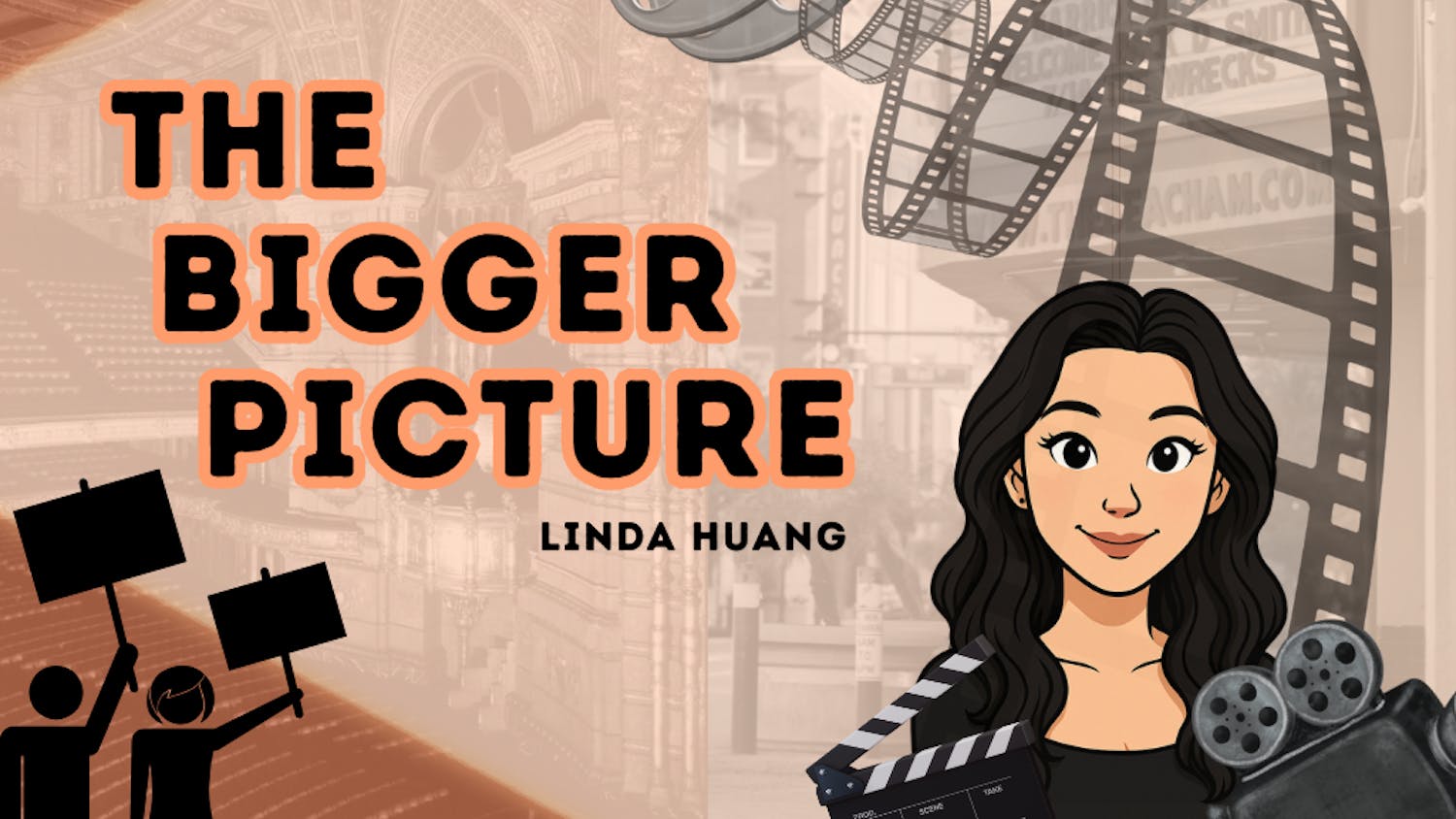There are only a few albums in your mom's music collection that you can actually imagine her sitting and listening to. They are the oldies she has a story about when they come on the radio, the albums that she was excited to get on CD when they were re-released.
They are the Joni Mitchells and the Carole Kings that you just know she flipped endlessly from side A to B and back again, listening as her high school sweethearts held her hand or broke her heart. And for the combined reason that they're a window into your mom's soul and they're just plain good, you like them too.
With "Extraordinary Machine," her most recent addition to a cache of already impressive and critically acclaimed albums, Fiona Apple becomes your Joni.
Some day a listen to her music will evoke nostalgia - not in the embarrassing way that "Barbie Girl" makes you think of the choreographed dance you made up in middle school, but a different brand that reminds you of real sentiment.
Like Apple herself, "Extraordinary Machine" has a sordid past. No, it didn't come out with a precocious and powerful debut at the tender age of 18, film a borderline soft-core music video and famously proclaim that "this world is bullshit" in an acceptance speech at the VMAs. Instead, its bit of scandal came from an Internet leak of an early version of the album.
After releasing the widely praised and commercially successful "Tidal" in 1996 and the widely praised though not-so-commercially successful "When the Pawn Hits the Conflicts He Thinks Like a King..." (1999), Apple retreated on a six-year music hiatus.
She eventually broke her silence by recording tracks with producer John Brion but then decided to shelve the album. These songs, not intended for release, were leaked as the nasty rumor spread that Apple's label, Sony, was withholding the record because it felt the songs weren't appealing enough.
Apple, insisting she was the cause of the album's shelf status, tried again with producer Mike Elizondo, known for his past work with Dr. Dre, Eminem, and 50 Cent. The unlikely pair worked on a simpler take on Apple's songs - one that takes care to showcase the artist's vocals and piano stylings. Brion's touch can still be felt on the first and last tracks, both of which are holdovers from round one.
These two songs are among the most memorable on the CD. The title track opens the album with a bouncy, show tune-esque song, proving that Apple didn't emerge from her time away wishing to sound exactly as she did before. "Extraordinary Machine" ends on an equally positive note with the optimistic "Waltz (Better Than Fine)." Staying true to its title, the three-quarter time breezy tune manages to impart a simple, hopeful message while Apple's well-wishing comes across as genuinely sincere.
On the rest of the album as well, Apple provides a diverse and well-executed collection of tracks that hold their own next to previous favorites like "Criminal" and "Shadowboxer." With some songs infectiously upbeat and others beautifully woeful, all boast the type of timeless composition that separates the "Blue (Da Ba Dee)"s from the "Big Yellow Taxi"s.
"Extraordinary Machine" is the type of album on which each track will be a favorite at some point. Individual experiences may vary, but Apple has provided enough range in both style and tone to suit all of the emotional needs of her audience.
Apple's strength undoubtedly lies in her lyrics, which she manages to craft poetically without sounding overwrought, and in her thoughtful distillations of emotions you hadn't realized were universal until she put them into words. She manages to make a circular argument sound lovely ("Last night's phrases / Sick with lack of basis / Are still writhing on my floor") and the routine sound lyrical ("Home is where my habits have a habitat").
While the idea of a singer and her trusty piano is by no stretch a new one, Apple holds her own in the genre and confirms her unique style among her contemporaries, some of whom weren't around last time she was adjusting her mic. With more street cred than Norah Jones and Vanessa Carlton, and with a shade less feminism than Tori Amos, Apple gets it right, as per her usual, on this new album.
"Extraordinary Machine" exists as a wholly enjoyable and thoughtful record from first track to last, plus all the new ones in between. It can provide background music or solace and its lyrics can, as is Apple's strength, take on a chameleonic role to fit with the listener's own emotion.





